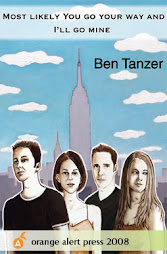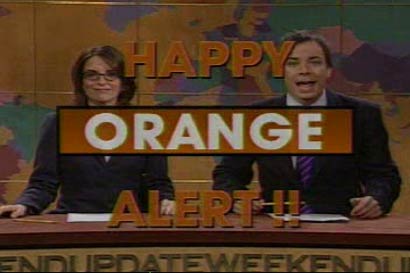
F.N. Wright
Lately I have been thinking a lot about projects, complete and incomplete alike, and wondering what drives us to finish one thing while delaying the other. Some believe that everything has its moment, all things will be accomplished in time and time dictates all things. I am currently listening to an album that took two years to complete, while others are recorded and released in a matter of months. Why was April, 2008 the proper month for this release, and why was it sent to me today. Why has Portishead taken ten years to release their third album? There seems to be connections to these events, reasons for urgency and reasons to validate procrastination.
Writer F.N. Wright knows about having a project delayed until it fell into its proper place. F.N. is the author of several novels (The Whorehouse, 1977, Flight to Freedom, 1986 and The Music Sluts, 2005) over the last thirty years, and all have been written at various stages of his life. As projects are started, shelved, completed, released a legacy is born. It has to give those creative souls with lists and dreams and goals and projects hope.
Recently, F.N. was kind enough to answer a few of my questions.
Lately I have been thinking a lot about projects, complete and incomplete alike, and wondering what drives us to finish one thing while delaying the other. Some believe that everything has its moment, all things will be accomplished in time and time dictates all things. I am currently listening to an album that took two years to complete, while others are recorded and released in a matter of months. Why was April, 2008 the proper month for this release, and why was it sent to me today. Why has Portishead taken ten years to release their third album? There seems to be connections to these events, reasons for urgency and reasons to validate procrastination.
Writer F.N. Wright knows about having a project delayed until it fell into its proper place. F.N. is the author of several novels (The Whorehouse, 1977, Flight to Freedom, 1986 and The Music Sluts, 2005) over the last thirty years, and all have been written at various stages of his life. As projects are started, shelved, completed, released a legacy is born. It has to give those creative souls with lists and dreams and goals and projects hope.
Recently, F.N. was kind enough to answer a few of my questions.
Orange Alert (OA): Your latest novel, The Music Sluts, is being called the sequel to 1977’s novel The Whorehouse. What can the reader expect from The Music Sluts and why the 30 year separation between the two novels?
F.N. Wright (FN): I should begin by saying I went to work for a chain of record store/head shops in the late 60’s. The name of the chain was The Wherehouse. The majority stockholder/owner was one of the most paranoid and greedy individuals I have ever encountered. All employees were required to take mandatory polygraph tests on a random basis. After several years, I refused to take any more and was surprised I was not terminated. He also hired people from a security firm to act as sales clerks in order to spy on the store managers and all other employees. It was ludicrous because it was obvious who they were since they were hired by the main office and not the store manager. As soon as I confirmed an individual was from the security firm (I had a source in the main office who would confirm my suspicions) I would terminate them.
As stressful as the job was, I really enjoyed it. I was soon opening new stores, training managers and crews, then moving on to open a new store in another city. I had been writing mostly poetry and painting for several years but soon began writing humorous stories about the company to relieve my stress. A girl (Tish Perry) I hired to work in a store I was opening and I fell in love and she started reading my stories. One night she said I had a novel on my hands so I began writing The Whorehouse or what I call the longest letter of resignation in history. Tish and I probably had one of the shortest engagements in history (laughs) though after all these years we remain close friends.
The Whorehouse is a very scatological satire about the corporate industry and what paranoia and the feeling of power and greed can do to people; and those involved with them. Eventually, four of the “honchos” and several other people in management positions resigned and started a chain of their own which they named Music Plus. Soon after, Music Plus began to hound me to come work for them. As bad as they wanted me to come to work for them, I had no desire to return to the L.A. area since I was priced out of the beach communities. However, in time, word got out about my book and I knew my days were numbered with The Wherehouse. Then Music Plus opened a store in what was then a small community in Ventura County and asked me to manage it. I drove down, checked it out and accepted their offer.
Music Plus was a blessing after The Wherehouse and referred to all employees as “family.” I think I went to work for them in early ’75 and The Whorehouse was published in late 1977. I then began writing my second novel, “Flight to Freedom” and it became so large I realized I had to break it up into a trilogy. In the meantime the four “honchos” went to hell for the most part. Two of them developed drug problems and all four discovered greed. Before long we were no longer referred to as “family” and many employee/friends were being terminated. Though I was being hassled on occasion I was pretty much left alone.
Bill Pieper, a rare book dealer I had been buying Patchen first editions from and became friends with, read The Whorehouse. He said it reminded him of Bukowski and I should try to get it published in Germany. Bill introduced me to John Martin who in turn put me in contact with Carl Weissner who was Bukowski’s German translator and European agent. Martin, by the way, did not endorse the book having not read it even though I had sent him a copy. Carl loved the book and compared me to HST. A compliment if there ever was one. He managed to sell it to one of Bukowski’s German publishers and got me five times more advance money than German publishers usually gave foreign writers, even the established ones.
Sales on the book were great. The German publisher sent Michael Montfort, Bukowski’s photographer/friend, out to take photos of me for book and publicity. He came out three times and we became friends and drinking buddies. This is relevant to the last part of your question. As I worked on “Flight to Freedom” I stopped and completed a novel called The Strangers. Then things went to shit at work and I was terminated in 1980. I went to work managing a bar and began writing The Music Sluts while finishing “Flight to Freedom”. The German edition of The Whorehouse was published in 1980. I sold “Flight” and it was published in 1986. I finished The Music Sluts and sold it to the same publisher. He lost money on a book he’d postponed publication of The Music Sluts for and went out of business. I put it aside because I was working on sequels to “Flight” but the reader can expect the same biting satire found in The Whorehouse.
In 1984 I went to work for the Postal Service. During these years Michael Montfort and I stayed in touch. He phoned one night after I’d left the Postal Service (disability) and said he had a friend and publisher who wanted to meet me. It was Gary Aposhian who owned 12 Gauge Press. He wanted to publish The Music Sluts. I enjoy writing but hate fucking around with submitting things. There is the reason for the 30 year separation between the books. I should get an agent I guess.
OA: Taking in to account your background in the record store business, what are your thoughts on the current state of the record business? With record stores closing daily, and more people turning to the web, what are your thoughts on new media and the record industry?
FN: It’s in sad shape. I have a friend who was in charge of MCA Records nationwide and he said sales were down and he was constantly having to lay-off people. I phoned him at his office in Santa Monica one day and he answered the phone instead of his secretary. I asked him where Dawn was (I loved flirting with her and she kept a picture of me on her desk. I think I was with Waylon Jennings in the pic) and he said he had had to lay her off. I called his office a couple of months ago and the number was no longer in service. I called Information, got a number for the record division, and the guy who answered the phone had never heard of Bob. It’s like he never existed. His home number was disconnected so I can only assume he was laid off and returned to Cleveland or moved to Vegas where he and his wife had a condo.
The sad thing is, like the book business when conglomerates began buying up publishing companies, the larger labels are afraid to sign new acts just like your large publishing companies are reluctant to publish unknown writers, less fiction and virtually no poetry. I doubt if artists like Warren Zevon or Tom Waits could even get a record deal with a major label today. But then, like the small press scene, the indie labels are beginning to grow. Kiefer Sutherland started a label and their first CD is by Rocco DeLuca and the Burden. The lead singer plays a dobro and it’s a fantastic CD.
As far as to what I think about the current media and record industry? SUCKING POND WATER! Artists are being cheated out of royalties and you don’t have the personal touch or ambience of a record store. Don’t get me wrong. I buy most of my CD’s, DVD’s and books from Amazon.com. I get better service or that equal of going into a Barnes & Noble, Borders, Best Buy or even one of the few remaining record store chains, Sam Goody’s. It used to be that record store and independent book store managers and employees developed a rapport with their customers. I am still friends with people that began as customers when I was in the record business going back 30-40 years ago; the same with people in the book business. I could go on but this answer is already too long. (Laughs)
OA: Many of your poems have a political theme to them, has your experience in the military influenced your writing in any way?
FN: You might get a short answer here. (Laughs again) YES! Besides Vietnam I spent time in about another dozen countries. Our government has no idea of what other cultures are and therefore the general populace is very ignorant. We think everyone should be and live like us which is absurd. We did not lose the war in Nam on the battlefield (the politicians abandoned the people of South Vietnam) and we will do the same in Iraq. I also believe we will eventually allow the Chinese to invade and conquer Taiwan which would be a major blow to the democracy we so vehemently preach.
OA: Why do you think Bukowski is such a major influence on today’s writer?
FN: That’s a tough one, perhaps because he recognized no boundaries or borders. Unfortunately, too many young writers today are trying to emulate him and not finding their own voices. They should also read some of the writers who influenced him. John Fante is the first one who comes to my mind.
OA: You’re also a painter. How would you describe your painting style? When did you first discover you wanted to paint?
FN: (laughs) More primitive than the primitives and often very whimsical. Most people seem attracted to my use of color. I come from a family of artists but I would say I really took to my painting when I was in my early twenties.
OA: What’s next for F.N. Wright?
FN: I hope to paint more than I have in the past two years and I want to do a final rewrite on my novel The Strangers and finish a novel I began in the late 80’s. Its working title is The Deviants and it’s about the Postal Service. Let’s say I’m picking up where Bukowski left off with his novel Post Office. The fucking place is even more of a nightmare than when he worked for them.
Bonus Questions:
OA: Coffee? If yes, what is your favorite type of coffee and where is your favorite coffee spot?
FN: I usually drink more tea these days than coffee but drink Yuban when home, always black. Coffee out is usually on Fridays when I go to The Rock Store, probably the most famous biker hangout in the world, when I go there for my weekly breakfast fix. I have never been to a Starbucks or any “coffee hangout” in my life.
OA: I’ve read you listen to the blues when you write, who are some of your favorites while writing in general?
FN: Oh god, that depends. I mostly prefer the “older” more than the current blues musicians when writing. Memphis Minne, Hank Williams Sr. whom I consider to be a great American poet and blues musician as well as a honky-tonker, Furry Lewis, John Lee Hooker, Cedell Davis; one of my favorites is a Tracy Nelson LP on the Prestige label I believe. She sang with Mother Earth in the 60’s and is said to have been a big influence on Joplin when the latter moved to San Francisco. There are just so many. Though I can’t leave out Lucinda Williams whose father is (I think he’s still alive) a southern poet named Miller Williams.
F.N. Wright (FN): I should begin by saying I went to work for a chain of record store/head shops in the late 60’s. The name of the chain was The Wherehouse. The majority stockholder/owner was one of the most paranoid and greedy individuals I have ever encountered. All employees were required to take mandatory polygraph tests on a random basis. After several years, I refused to take any more and was surprised I was not terminated. He also hired people from a security firm to act as sales clerks in order to spy on the store managers and all other employees. It was ludicrous because it was obvious who they were since they were hired by the main office and not the store manager. As soon as I confirmed an individual was from the security firm (I had a source in the main office who would confirm my suspicions) I would terminate them.
As stressful as the job was, I really enjoyed it. I was soon opening new stores, training managers and crews, then moving on to open a new store in another city. I had been writing mostly poetry and painting for several years but soon began writing humorous stories about the company to relieve my stress. A girl (Tish Perry) I hired to work in a store I was opening and I fell in love and she started reading my stories. One night she said I had a novel on my hands so I began writing The Whorehouse or what I call the longest letter of resignation in history. Tish and I probably had one of the shortest engagements in history (laughs) though after all these years we remain close friends.
The Whorehouse is a very scatological satire about the corporate industry and what paranoia and the feeling of power and greed can do to people; and those involved with them. Eventually, four of the “honchos” and several other people in management positions resigned and started a chain of their own which they named Music Plus. Soon after, Music Plus began to hound me to come work for them. As bad as they wanted me to come to work for them, I had no desire to return to the L.A. area since I was priced out of the beach communities. However, in time, word got out about my book and I knew my days were numbered with The Wherehouse. Then Music Plus opened a store in what was then a small community in Ventura County and asked me to manage it. I drove down, checked it out and accepted their offer.
Music Plus was a blessing after The Wherehouse and referred to all employees as “family.” I think I went to work for them in early ’75 and The Whorehouse was published in late 1977. I then began writing my second novel, “Flight to Freedom” and it became so large I realized I had to break it up into a trilogy. In the meantime the four “honchos” went to hell for the most part. Two of them developed drug problems and all four discovered greed. Before long we were no longer referred to as “family” and many employee/friends were being terminated. Though I was being hassled on occasion I was pretty much left alone.
Bill Pieper, a rare book dealer I had been buying Patchen first editions from and became friends with, read The Whorehouse. He said it reminded him of Bukowski and I should try to get it published in Germany. Bill introduced me to John Martin who in turn put me in contact with Carl Weissner who was Bukowski’s German translator and European agent. Martin, by the way, did not endorse the book having not read it even though I had sent him a copy. Carl loved the book and compared me to HST. A compliment if there ever was one. He managed to sell it to one of Bukowski’s German publishers and got me five times more advance money than German publishers usually gave foreign writers, even the established ones.
Sales on the book were great. The German publisher sent Michael Montfort, Bukowski’s photographer/friend, out to take photos of me for book and publicity. He came out three times and we became friends and drinking buddies. This is relevant to the last part of your question. As I worked on “Flight to Freedom” I stopped and completed a novel called The Strangers. Then things went to shit at work and I was terminated in 1980. I went to work managing a bar and began writing The Music Sluts while finishing “Flight to Freedom”. The German edition of The Whorehouse was published in 1980. I sold “Flight” and it was published in 1986. I finished The Music Sluts and sold it to the same publisher. He lost money on a book he’d postponed publication of The Music Sluts for and went out of business. I put it aside because I was working on sequels to “Flight” but the reader can expect the same biting satire found in The Whorehouse.
In 1984 I went to work for the Postal Service. During these years Michael Montfort and I stayed in touch. He phoned one night after I’d left the Postal Service (disability) and said he had a friend and publisher who wanted to meet me. It was Gary Aposhian who owned 12 Gauge Press. He wanted to publish The Music Sluts. I enjoy writing but hate fucking around with submitting things. There is the reason for the 30 year separation between the books. I should get an agent I guess.
OA: Taking in to account your background in the record store business, what are your thoughts on the current state of the record business? With record stores closing daily, and more people turning to the web, what are your thoughts on new media and the record industry?
FN: It’s in sad shape. I have a friend who was in charge of MCA Records nationwide and he said sales were down and he was constantly having to lay-off people. I phoned him at his office in Santa Monica one day and he answered the phone instead of his secretary. I asked him where Dawn was (I loved flirting with her and she kept a picture of me on her desk. I think I was with Waylon Jennings in the pic) and he said he had had to lay her off. I called his office a couple of months ago and the number was no longer in service. I called Information, got a number for the record division, and the guy who answered the phone had never heard of Bob. It’s like he never existed. His home number was disconnected so I can only assume he was laid off and returned to Cleveland or moved to Vegas where he and his wife had a condo.
The sad thing is, like the book business when conglomerates began buying up publishing companies, the larger labels are afraid to sign new acts just like your large publishing companies are reluctant to publish unknown writers, less fiction and virtually no poetry. I doubt if artists like Warren Zevon or Tom Waits could even get a record deal with a major label today. But then, like the small press scene, the indie labels are beginning to grow. Kiefer Sutherland started a label and their first CD is by Rocco DeLuca and the Burden. The lead singer plays a dobro and it’s a fantastic CD.
As far as to what I think about the current media and record industry? SUCKING POND WATER! Artists are being cheated out of royalties and you don’t have the personal touch or ambience of a record store. Don’t get me wrong. I buy most of my CD’s, DVD’s and books from Amazon.com. I get better service or that equal of going into a Barnes & Noble, Borders, Best Buy or even one of the few remaining record store chains, Sam Goody’s. It used to be that record store and independent book store managers and employees developed a rapport with their customers. I am still friends with people that began as customers when I was in the record business going back 30-40 years ago; the same with people in the book business. I could go on but this answer is already too long. (Laughs)
OA: Many of your poems have a political theme to them, has your experience in the military influenced your writing in any way?
FN: You might get a short answer here. (Laughs again) YES! Besides Vietnam I spent time in about another dozen countries. Our government has no idea of what other cultures are and therefore the general populace is very ignorant. We think everyone should be and live like us which is absurd. We did not lose the war in Nam on the battlefield (the politicians abandoned the people of South Vietnam) and we will do the same in Iraq. I also believe we will eventually allow the Chinese to invade and conquer Taiwan which would be a major blow to the democracy we so vehemently preach.
OA: Why do you think Bukowski is such a major influence on today’s writer?
FN: That’s a tough one, perhaps because he recognized no boundaries or borders. Unfortunately, too many young writers today are trying to emulate him and not finding their own voices. They should also read some of the writers who influenced him. John Fante is the first one who comes to my mind.
OA: You’re also a painter. How would you describe your painting style? When did you first discover you wanted to paint?
FN: (laughs) More primitive than the primitives and often very whimsical. Most people seem attracted to my use of color. I come from a family of artists but I would say I really took to my painting when I was in my early twenties.
OA: What’s next for F.N. Wright?
FN: I hope to paint more than I have in the past two years and I want to do a final rewrite on my novel The Strangers and finish a novel I began in the late 80’s. Its working title is The Deviants and it’s about the Postal Service. Let’s say I’m picking up where Bukowski left off with his novel Post Office. The fucking place is even more of a nightmare than when he worked for them.
Bonus Questions:
OA: Coffee? If yes, what is your favorite type of coffee and where is your favorite coffee spot?
FN: I usually drink more tea these days than coffee but drink Yuban when home, always black. Coffee out is usually on Fridays when I go to The Rock Store, probably the most famous biker hangout in the world, when I go there for my weekly breakfast fix. I have never been to a Starbucks or any “coffee hangout” in my life.
OA: I’ve read you listen to the blues when you write, who are some of your favorites while writing in general?
FN: Oh god, that depends. I mostly prefer the “older” more than the current blues musicians when writing. Memphis Minne, Hank Williams Sr. whom I consider to be a great American poet and blues musician as well as a honky-tonker, Furry Lewis, John Lee Hooker, Cedell Davis; one of my favorites is a Tracy Nelson LP on the Prestige label I believe. She sang with Mother Earth in the 60’s and is said to have been a big influence on Joplin when the latter moved to San Francisco. There are just so many. Though I can’t leave out Lucinda Williams whose father is (I think he’s still alive) a southern poet named Miller Williams.
For more information on F.N. Wright please visit his website, and also be on there look out new material from Wright to be released by Rural Messenger Press this month.
+by+Nick+Volkert).jpg)





















2 comments:
Another great one Jason.
Having worked at the Wherehouse and knowing a lot of the characters in the Whorehouse (including the girl who actually did reaphabatize the sotre front to back) I have to say FN Wright is an unappreciated genius!
Post a Comment